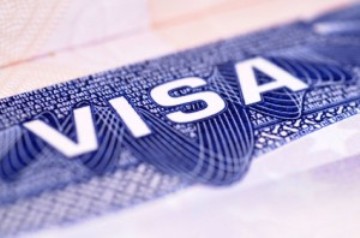New translation: Sudanese nationals with dual citizenship could be impacted by new U.S. visa policy
December 12, 2015 (WASHINGTON) – The United States congress is rushing a proposed legislation that would introduce sweeping changes to the Visa Waiver Program (VWP) which was established to allow citizens from 38 countries travel to U.S. without a visa for stays of up to 90 days.
 Following terrorist attacks in Paris, U.S. officials have become fearful that citizens of these countries, who are members of ISIS or other terrorist groups, could utilize VWP to sneak into the county to carry out attacks.
Following terrorist attacks in Paris, U.S. officials have become fearful that citizens of these countries, who are members of ISIS or other terrorist groups, could utilize VWP to sneak into the county to carry out attacks.
The alleged Paris attackers were European citizens who could have theoretically entered the U.S. with little scrutiny.
If the changes to the VWP are approved, dual nationals of countries namely Iraq, Syria, Iran or Sudan and recent visitors to those countries would be unable to enter the U.S. through VWP.
There are also fears that VWP countries might reciprocate to require visas from U.S. citizens who fit into the same criteria.
Sudan is not mentioned specifically in the bill but since it is designated under the International Emergency Economic Powers Act, it will be impacted. The U.S. lists Sudan as a state sponsor of terrorism and is under comprehensive economic sanctions since 1997.
For example, a French citizen with Sudanese nationality will need to apply for a visa through a U.S. embassy or consulate. Also a Dutch citizen who travelled to Sudan anytime since March 2011 will also have to go through the same process even if they visited as aid workers or students.
Even though the proposed bill passed the House by a sweeping majority, some Democrat lawmakers are attempting to introduce changes to avoid discriminating based on national origin.
“Making sure that we avoid as many unintended consequences as possible is particularly important when we are proposing to disqualify specific populations of people from long standing immigration practices,” a letter from 33 Democratic lawmaker reads.
“As written, H.R. 158 would result in discrimination against people simply because of their ancestry. These changes could result in our Visa Waiver Program partner nations placing new limits on travel by U.S. citizens to their countries. Fundamentally, people seeking entry into our country should be evaluated based on the specific security risk that they themselves pose – not where their parents are from”.
The White House has indicated however, that it backs the bill in its current form. It is currently in the Senate and is expected to be included in a spending package that must be approved before Wednesday to avoid a government shutdown.
(ST)
